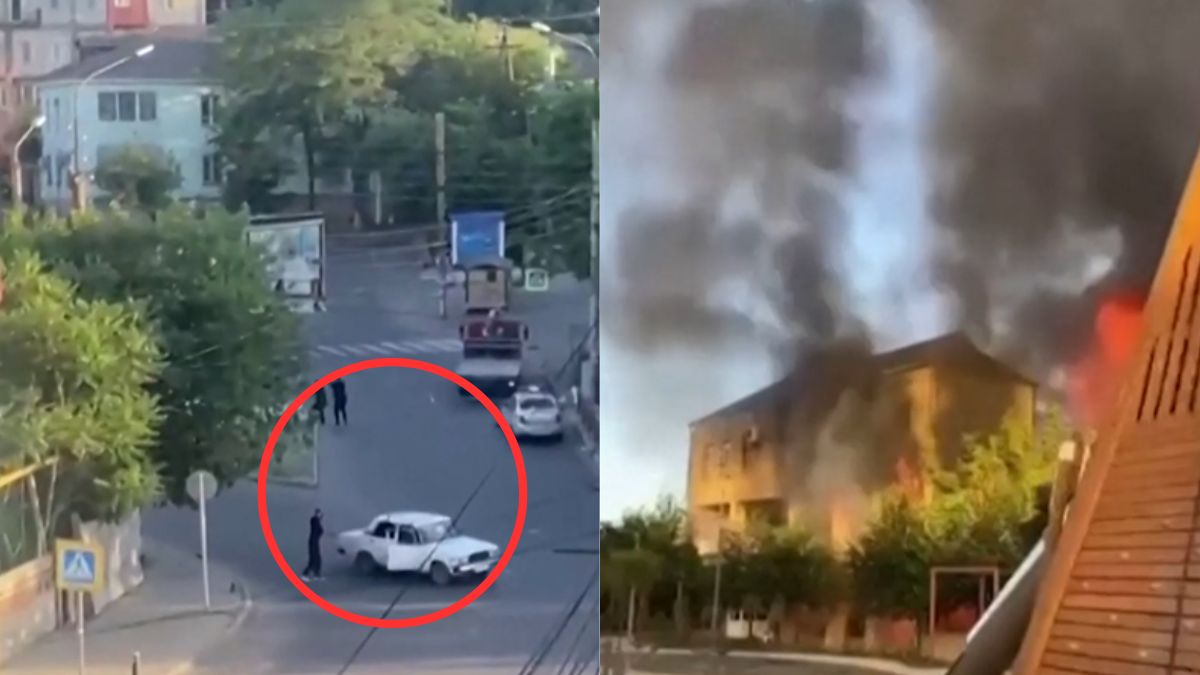On June 23, 2024, a coordinated series of terrorist attacks struck Russia’s southern Republic of Dagestan, plunging the region into chaos and fear. The attacks, which targeted several locations, resulted in significant casualties and highlighted ongoing security challenges in the North Caucasus.
Table of Contents
The Attacks
The first attack occurred in the early morning hours in Makhachkala, Dagestan’s capital. A car bomb exploded outside a government building, killing at least 15 people and injuring dozens more. The blast was powerful enough to shatter windows within a three-block radius, causing widespread panic and chaos as emergency services rushed to the scene. This initial attack was followed by a series of coordinated assaults across the region.
Shortly after the Makhachkala bombing, gunmen launched an attack on a police checkpoint near the city of Khasavyurt. The attackers, armed with automatic rifles and grenades, engaged in a fierce firefight with security forces. At least 10 police officers were killed, and several more were wounded before the attackers managed to flee into the surrounding mountains.
In another incident, a suicide bomber detonated an explosive device at a crowded market in Derbent, one of the oldest cities in Russia, killing 12 people and injuring dozens. This attack further exacerbated the sense of insecurity in the region, as the market was a hub of daily life for the local community.

Immediate Response
In the aftermath of the attacks, Russian authorities swiftly moved to secure the region and track down those responsible. President Vladimir Putin condemned the attacks, vowing to bring the perpetrators to justice and to bolster security measures in Dagestan and the broader North Caucasus region. He ordered the deployment of additional military and police units to key locations and called for increased intelligence operations to prevent further attacks.
The Federal Security Service (FSB) and the Interior Ministry launched a large-scale manhunt for the attackers. Checkpoints were established on major roads, and helicopters patrolled the mountainous areas where the gunmen were believed to be hiding. A state of emergency was declared in Dagestan, granting security forces expanded powers to conduct searches and detain suspects.
Background and Implications
Dagestan, a republic within the Russian Federation, has long been a hotbed of separatist and Islamist insurgency. The region’s complex mix of ethnic groups, economic challenges, and historical grievances has made it a fertile ground for extremist ideologies. Various militant groups, including those affiliated with the Islamic State and Al-Qaeda, have been active in Dagestan, carrying out attacks against security forces, government officials, and civilians.
The June 23 attacks underscore the persistent threat posed by these groups despite years of counter-terrorism efforts by Russian authorities. The incidents highlight the need for a comprehensive strategy that addresses the root causes of extremism in the region, including poverty, unemployment, and political disenfranchisement.
International Reactions
The international community reacted with condemnation and solidarity. The United Nations, European Union, and several countries, including the United States, expressed their condolences to the victims and offered support to Russia in its fight against terrorism. These attacks served as a stark reminder of the global nature of terrorism and the need for coordinated international efforts to combat it.
Moving Forward
The June 23, 2024, attacks in Dagestan are a tragic reminder of the region’s volatility and the ongoing challenges in ensuring security and stability. As Russian authorities intensify their counter-terrorism operations, it is crucial to address the underlying issues that fuel extremism. Only through a combination of robust security measures and socio-economic development can lasting peace be achieved in Dagestan and the broader North Caucasus region.



